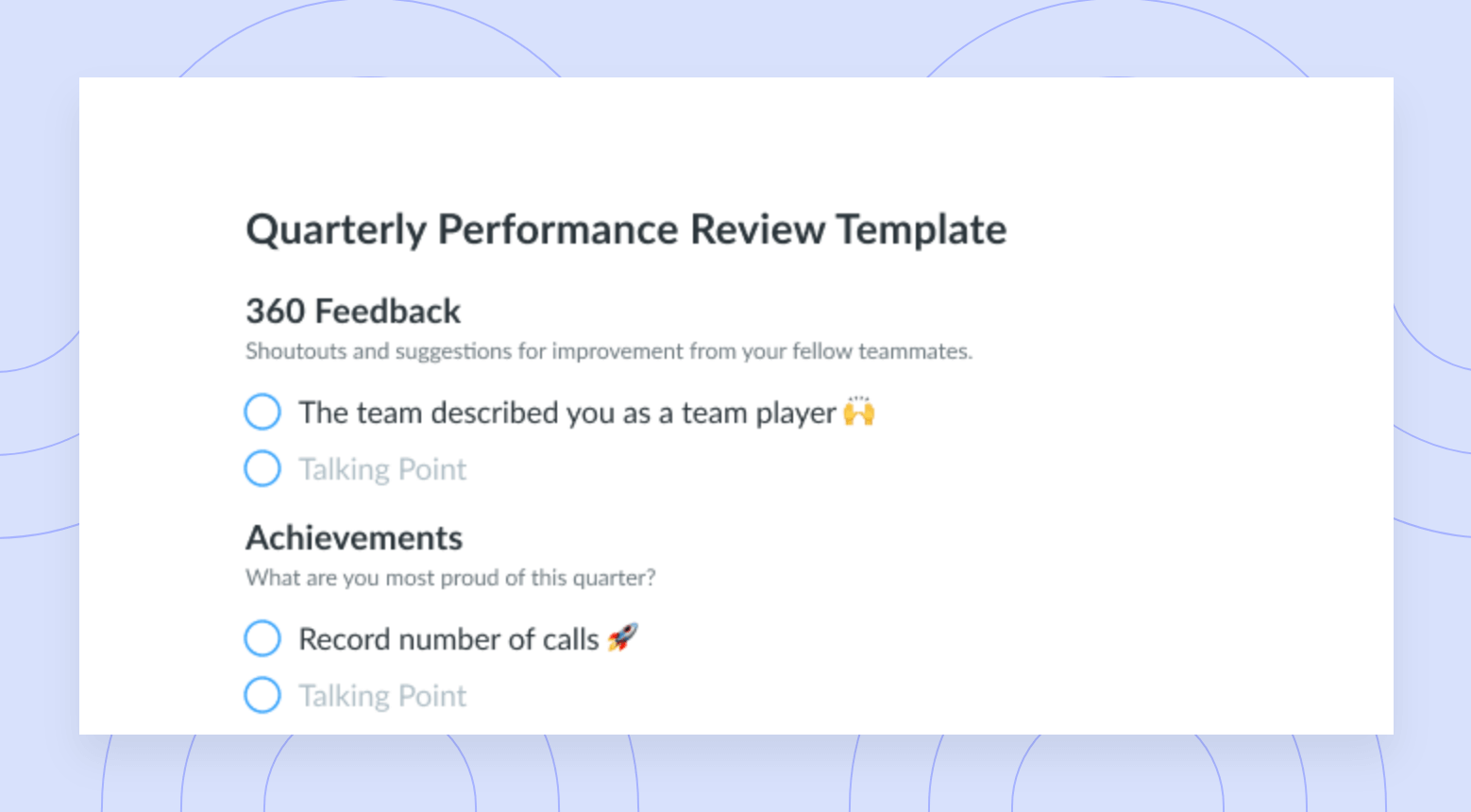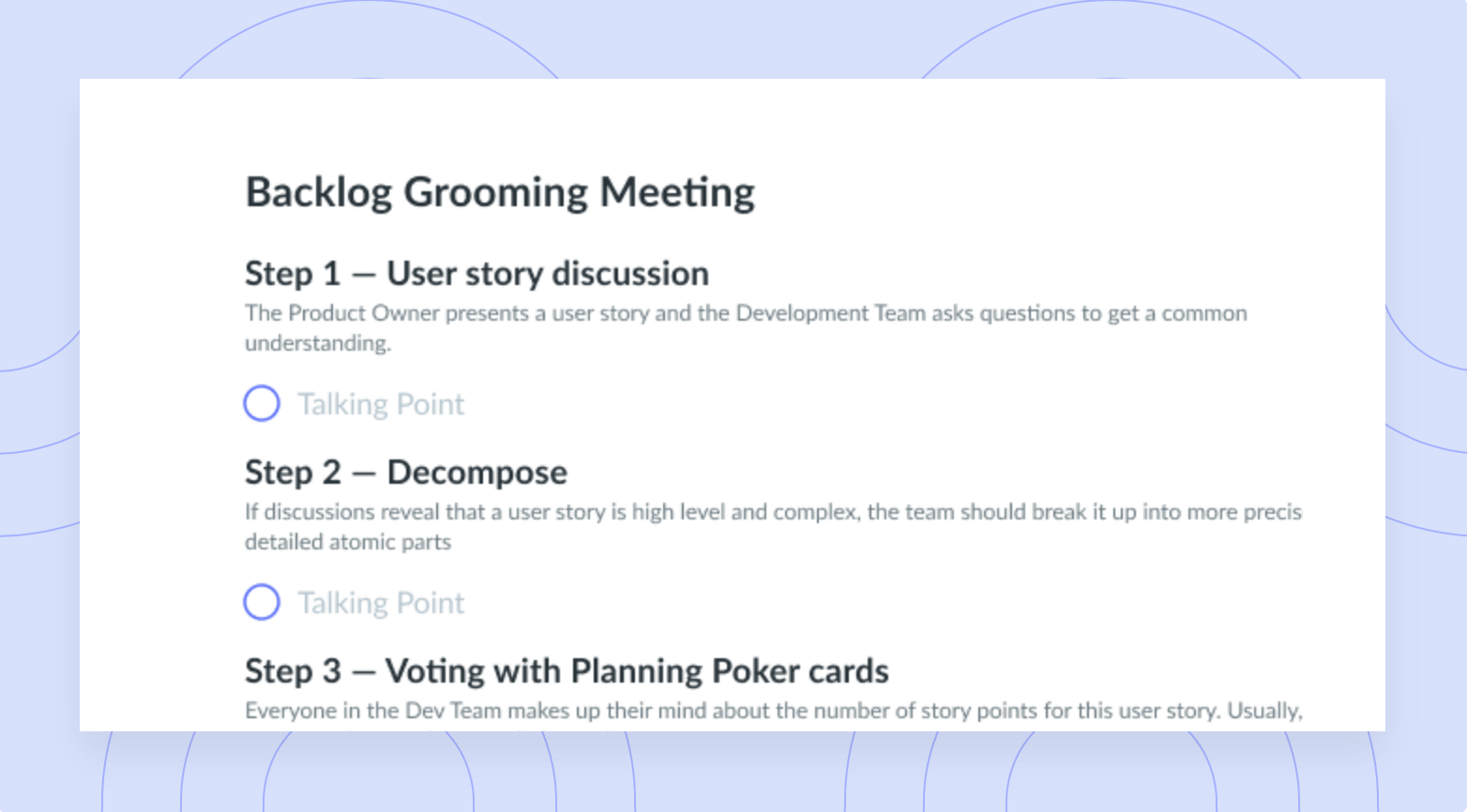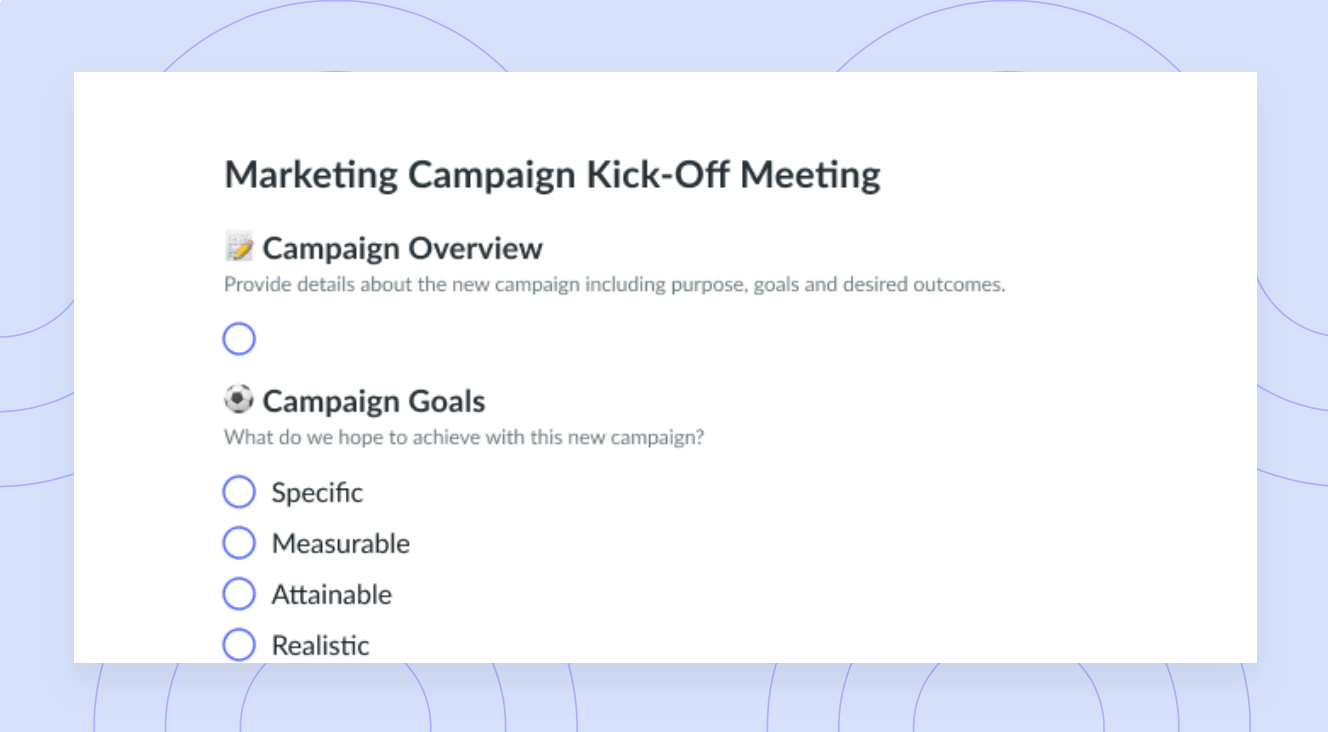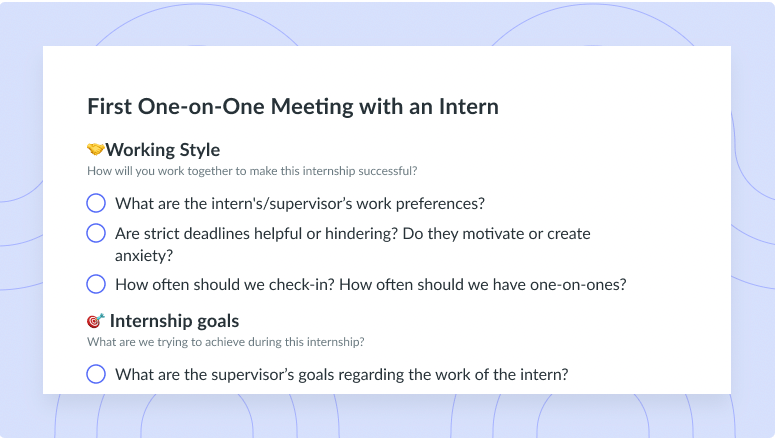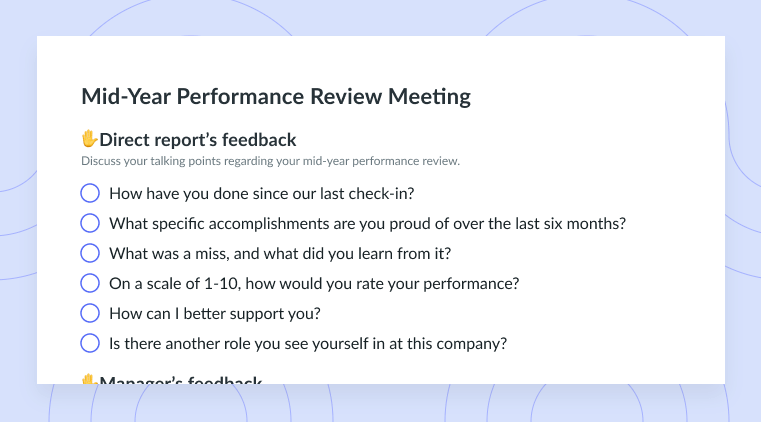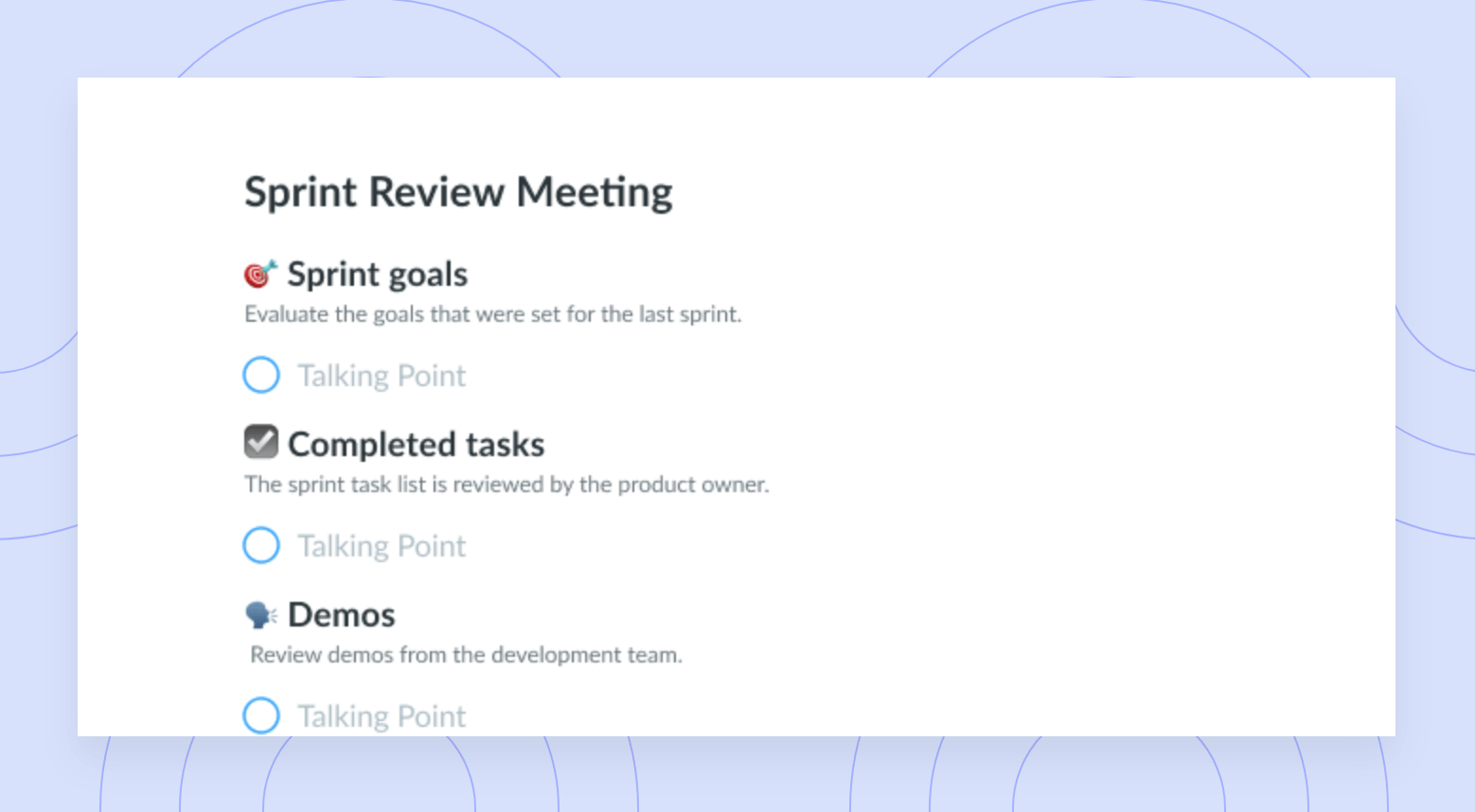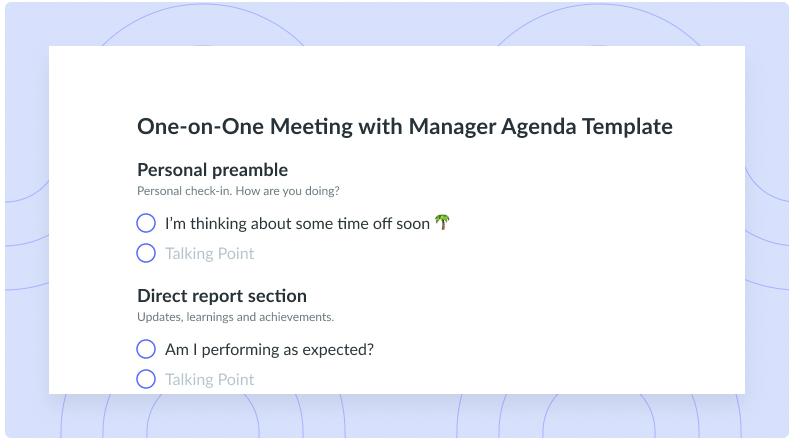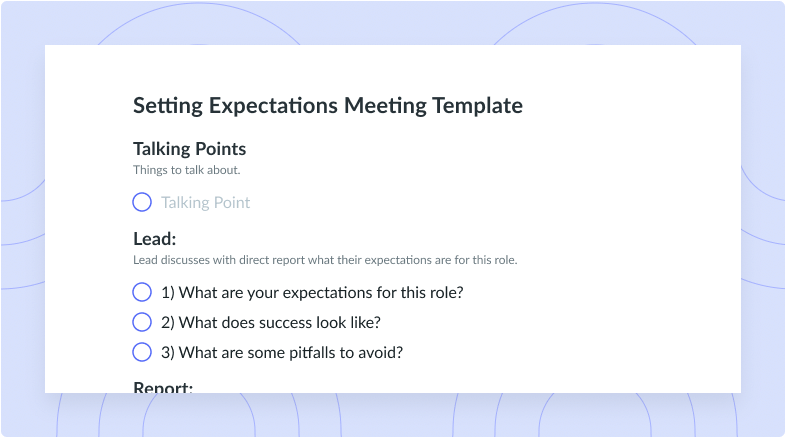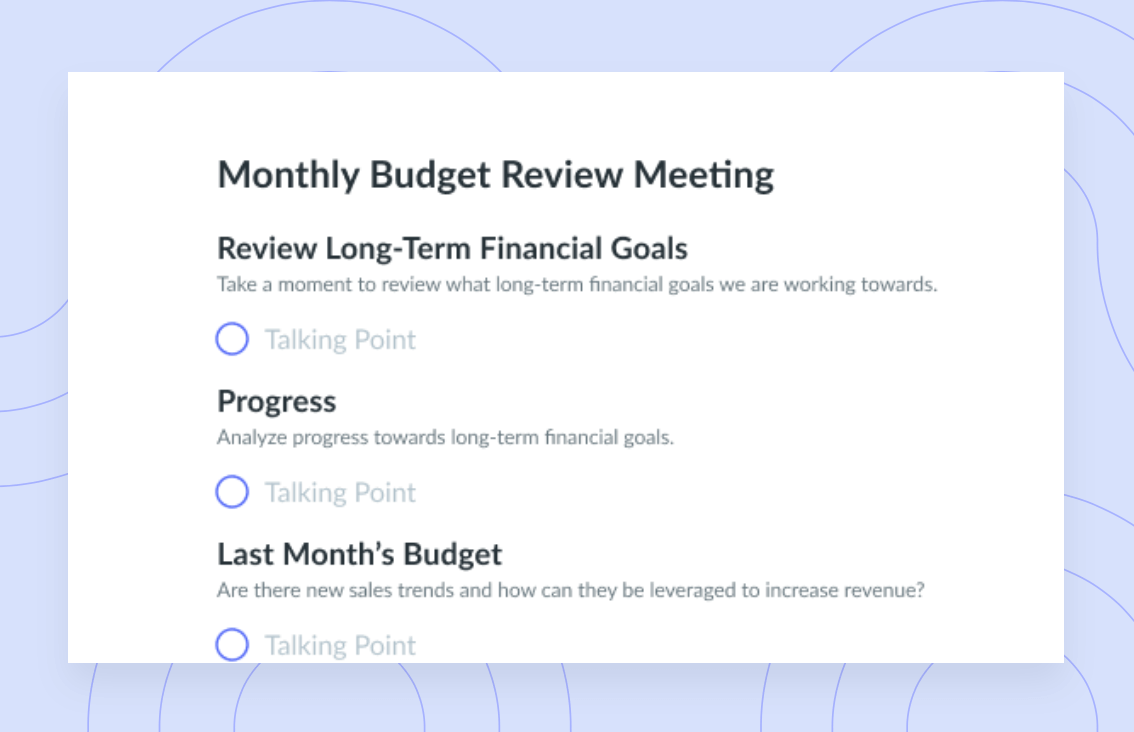8 Meeting Roles You Can Assign to Inspire Delightful Meetings
Make your meetings delightful by including everyone and assigning roles to ensure productive meetings!
Say goodbye to unorganized meetings and say hello to productive and delightful meetings!
You don’t typically see the words “delightful” and “meetings” in the same sentence. However, by assigning meeting roles you can change that narrative and begin enjoying delightful and productive meetings!
So, let’s learn the importance of assigning clear roles and responsibilities and 8 meeting roles that you can start assigning…
Why is it important to define clear meeting roles?
Nothing is worse than attending an unorganized meeting. When nobody knows what they are responsible for, it results in meetings beginning and ending late, everyone talking over each other, and nothing gets recorded.
However, meetings should not be that way. They should be inclusive, collaborative, and a good use of everyone’s time. Therefore, it is important to define clear meeting roles to ensure that your meetings are effective and organized, create conversations where everyone’s voice is heard, promote an environment of psychological safety, and leverage technology to boost meeting productivity.
8 meeting roles to assign (and rotate) amongst your team
Here are 8 meeting roles that you can assign (and rotate) amongst your team to achieve productive and delightful meetings!…
Pro Tip: For recurring meetings, assign each person’s role for the next meeting at the end of each meeting. This will ensure that everyone has enough time to fulfill the responsibilities of their role.
- Organizer
- Host
- Note-taker
- Time-keeper
- Decision maker
- Voice of the customer
- Optional attendees
- Informed participants
1 Organizer
Imagine joining your meeting and being the only one there, just to realize that you forgot to send out the meeting invites… on the bright side, I guess you won’t need to worry about having a productive meeting!
Assigning a meeting organizer is important to ensure that meetings are scheduled, invites are sent, and meeting agendas are shared. It is also the meeting organizer’s job to decide who is invited to the meeting, ensuring that only those necessary are invited.
Here is an example of the role of the organizer according to Fellow’s meeting policy:
“The organizer should set the objectives and goals of the meeting ahead of time, meaning you and all of the meeting participants have a clear understanding of why the meeting is taking place and what will be discussed.”
2 Host
The host of the meeting is responsible for keeping the meeting on track and ensuring that it is executed promptly. This is achieved by ensuring that the meeting agenda is followed.
They are also responsible for ensuring that each talking point on the agenda is discussed, decisions are made, next steps are established, and assigned tasks and due dates are clarified.
Finally, they are responsible for ensuring that psychological safety is followed. This means creating a welcoming environment that encourages everyone to participate.
3 Note-taker
The note-taker of the meeting is one of the most important and overlooked roles. This role is often overlooked because it is assumed that each person will take their own notes, making this role unnecessary.
However, having each team member take individual notes is inefficient for a few reasons:
- Some team members will not take notes
- Some team members will take insufficient notes
- Some team members will focus so much on taking detailed notes that they miss half the information
So, to avoid this, it is important to have a note-taker at each meeting. The note-taker is responsible for taking meeting notes on decisions made, tasks assigned, due dates, next steps, and anything else that one would need to retrieve at a later date.

Pro tip
Use a meeting management tool like Fellow to clearly assign meeting roles in the agenda to ensure a delightful meeting each time.
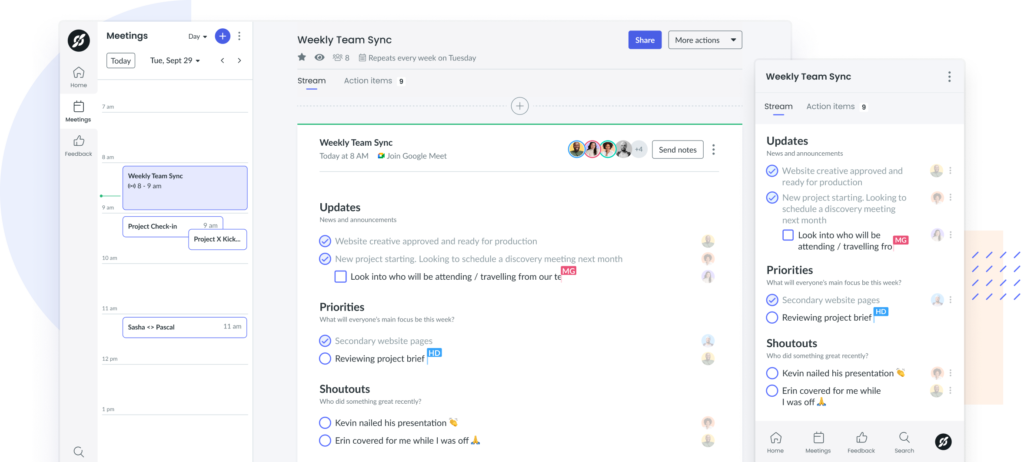
4 Time-keeper
We’ve all been in meetings where we are constantly bobbing our heads to stay awake. I like to think about Jason Fried’s, founder and CEO of Basecamp, metaphor to explain this, “meetings should be like salt—a spice sprinkled carefully to enhance a dish. Too much salt destroys a dish. Too many meetings destroy morale and motivation.”
The time-keeper’s responsibility is to work hand-in-hand with the host of the meeting to ensure that they are following the time allotted on the meeting agenda; In reference to Fried’s metaphor, they are ensuring that not too much salt is used!
It is also the time-keeper’s responsibility to step in when the conversation gets off-topic and redirect everyone’s attention to the main talking points.
5 Decision maker
Before you stress, no, the decision-maker is not the person who makes all the decisions in the meeting! The decisions made in a meeting are made collaboratively with the whole team’s opinions.
However, it is the responsibility of the decision-makers to state the final decision that will be recorded. This role is important because, in meetings, especially large ones, many people may have differing opinions. This can make the note-takers role difficult by trying to figure out what the official decision to record is.
6 Voice of the customer
Obviously, customers are not invited to company meetings. But it is important to remember that without customers, your company would not succeed. This is why you must keep in mind how each decision will affect your customers.
Thus, the voice of the customer in meetings is responsible for representing the consumers and looking at each decision from the customers’ point of view.
Here are a few example questions that the voice of the customer should ask:
- How does this decision affect our customers negatively and positively?
- How does this decision reflect on the company from our customers’ perspectives?
- Does this decision uphold promises made to our customers?
- As a consumer, would this make you happier with the product?
7 Optional attendees
Optional attendees are people who choose if they want to attend the meeting. These people often base this decision on if the points in the meeting are important to them and if they can fit this meeting into their busy schedule.
For example, if the marketing team is having their weekly team meeting, they may say that the sales manager can be an optional attendee if they want to see what the marketing side is doing.
The role of the optional attendees is to review the meeting agenda before the meeting and direct their questions and/or comments to the meeting host. Although they are not necessary to the meeting, they are still welcomed to contribute to all discussions!
8 Informed participants/stakeholders
Now, let’s not forget about those who were not in the meeting! The role of the informed participants/stakeholders is to review the meeting notes and meeting minutes after the meeting ends. Again, if they have any questions and/or comments, they should contact the meeting host.
This is another reason why it is important to have a note-taker so that informed participants and stakeholders can review decisions and next steps without being present in the meeting.
Parting advice
To inspire productive and delightful meetings, it is important to delegate meeting roles. These roles should also be rotated, giving each person an opportunity to try out each role. This will encourage participation from all your team members and keep meetings less repetitive for those who have roles.
So, what are you waiting for? Start assigning roles ASAP and begin enjoying productive and delightful meetings!









